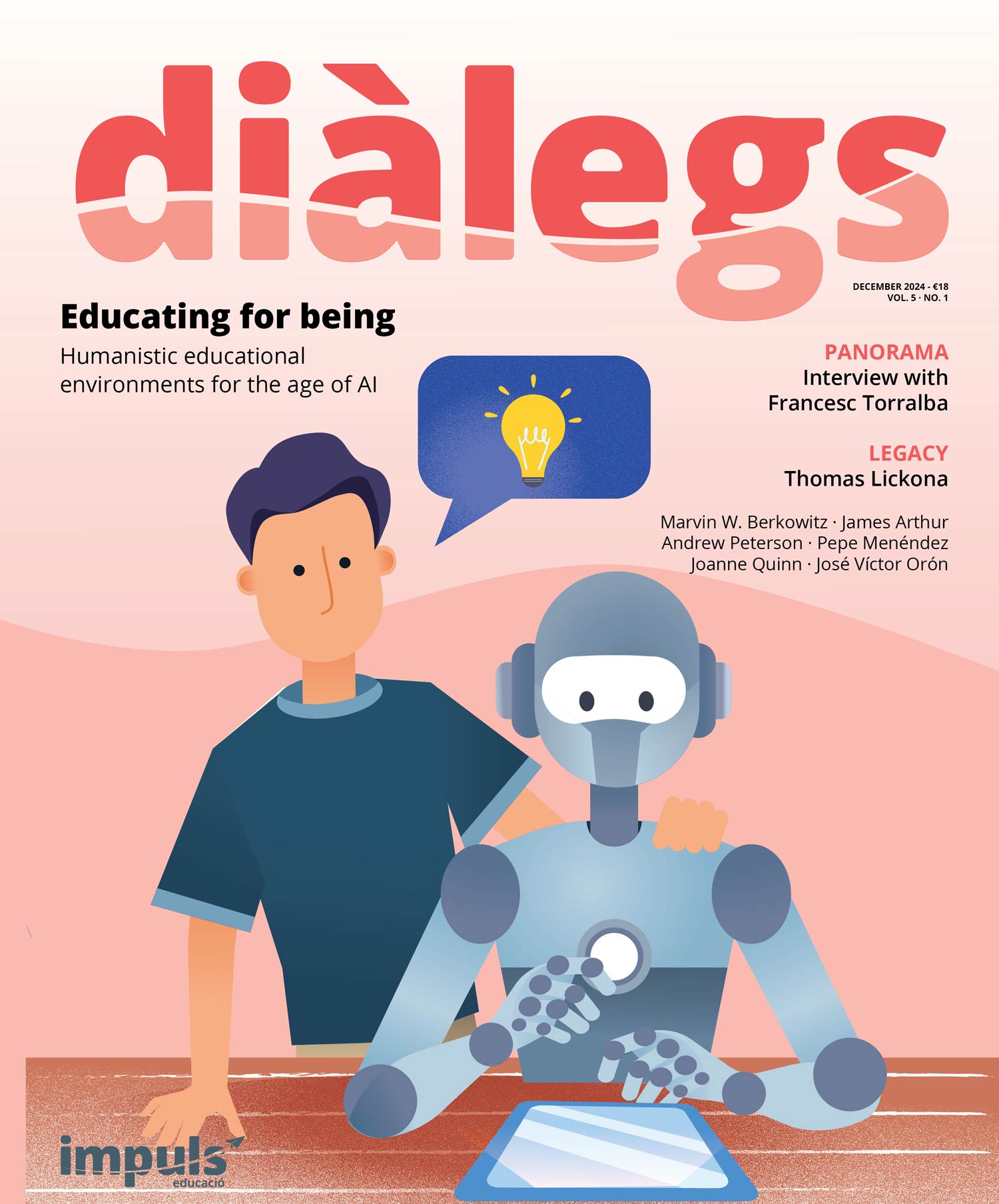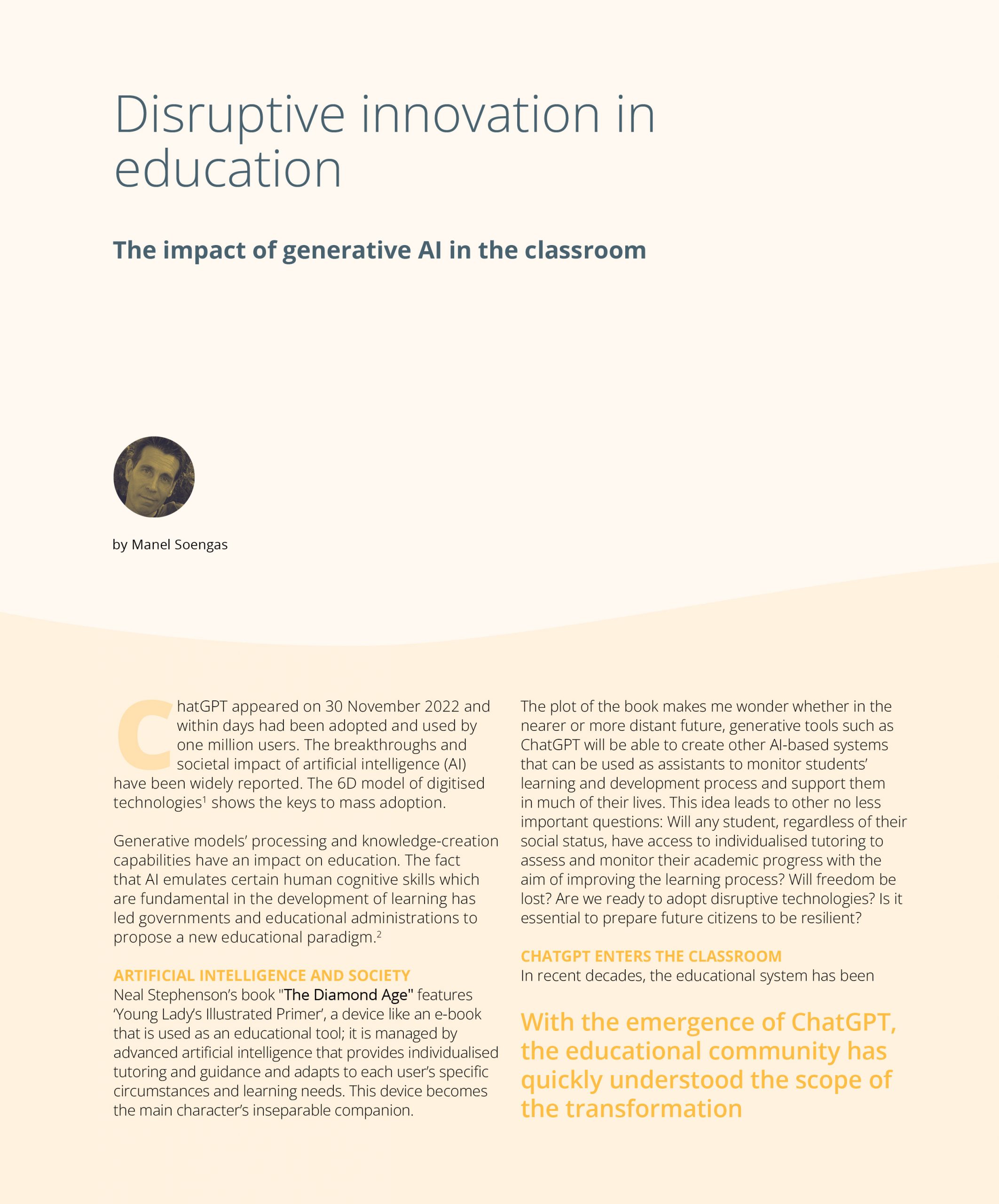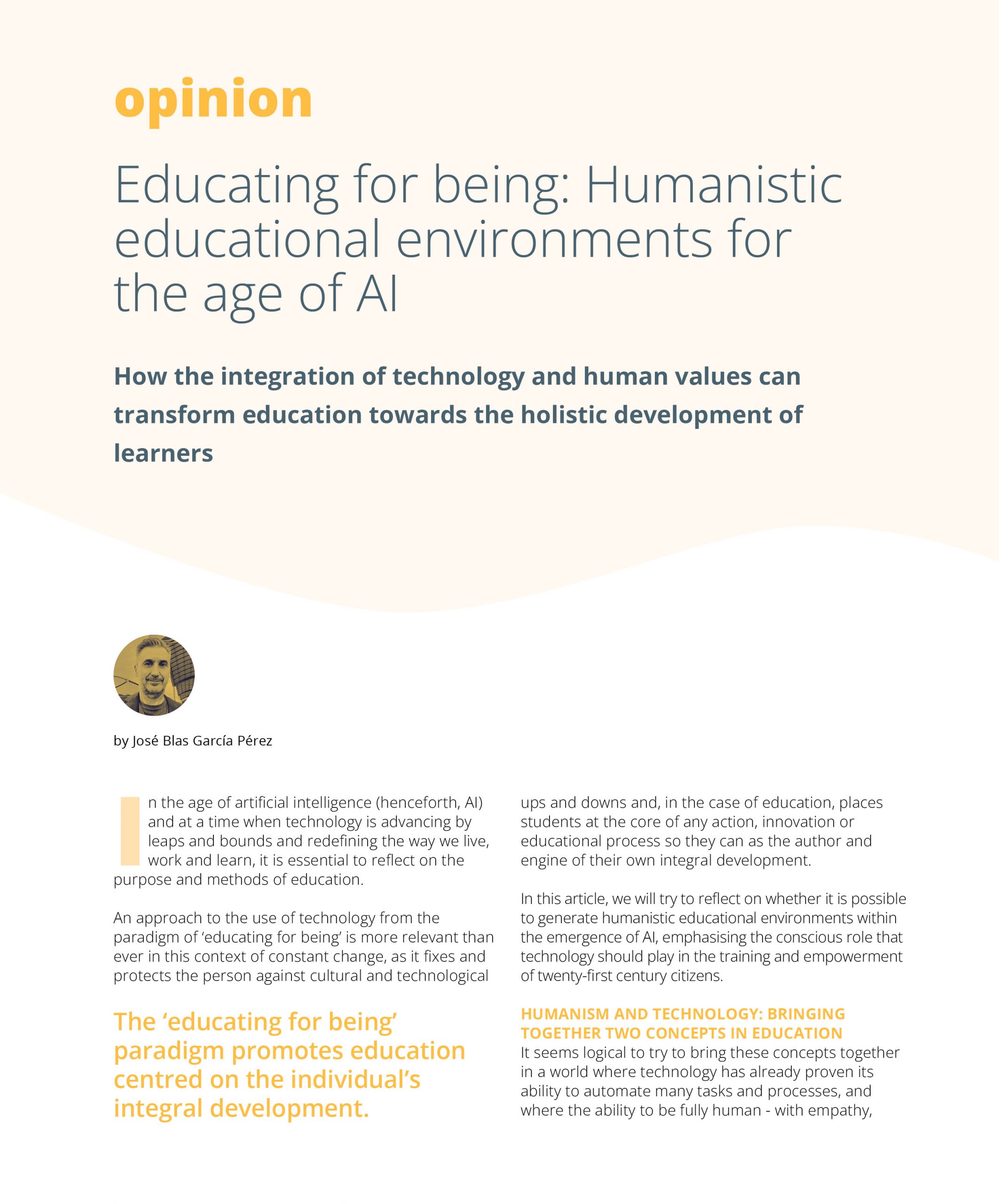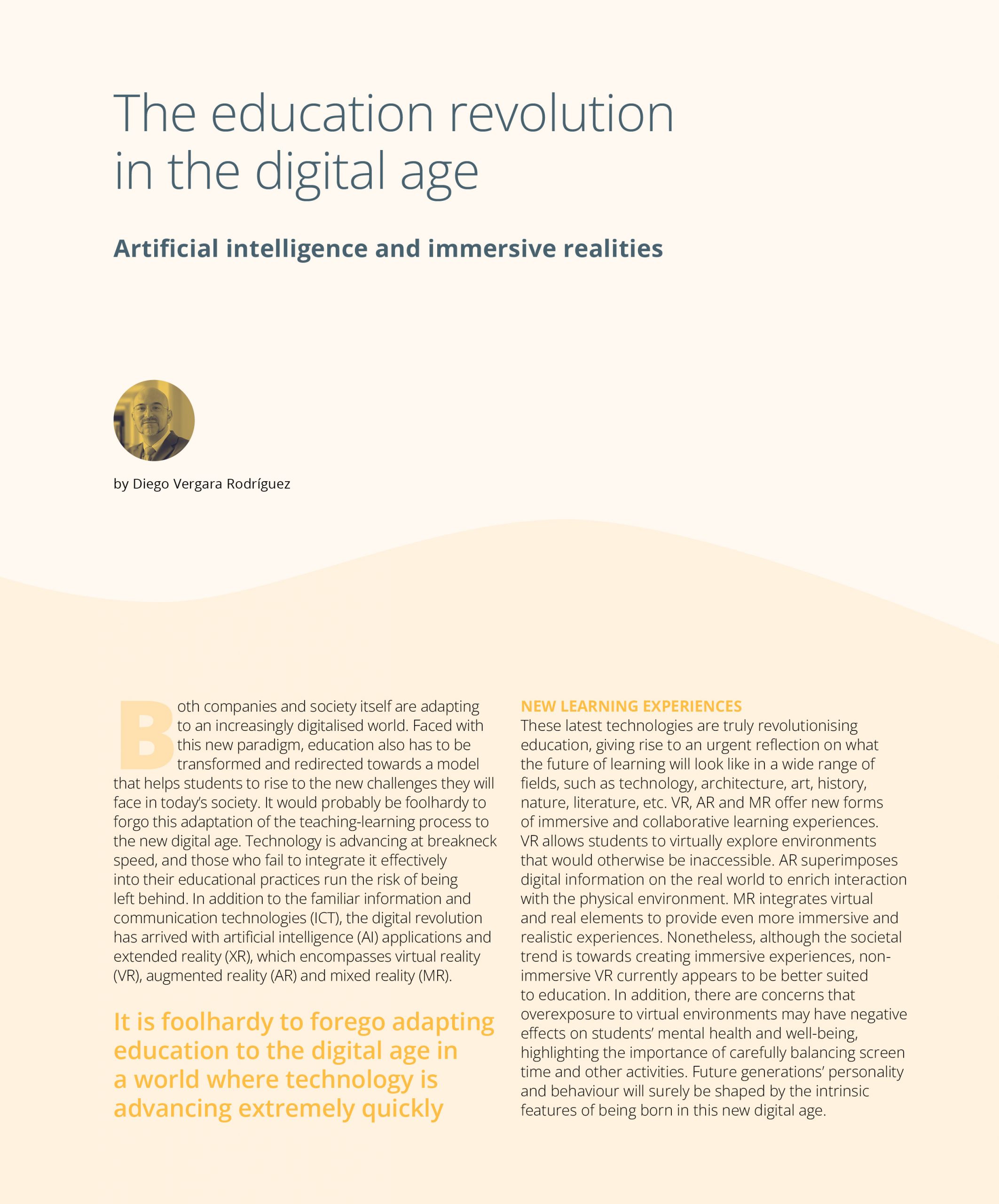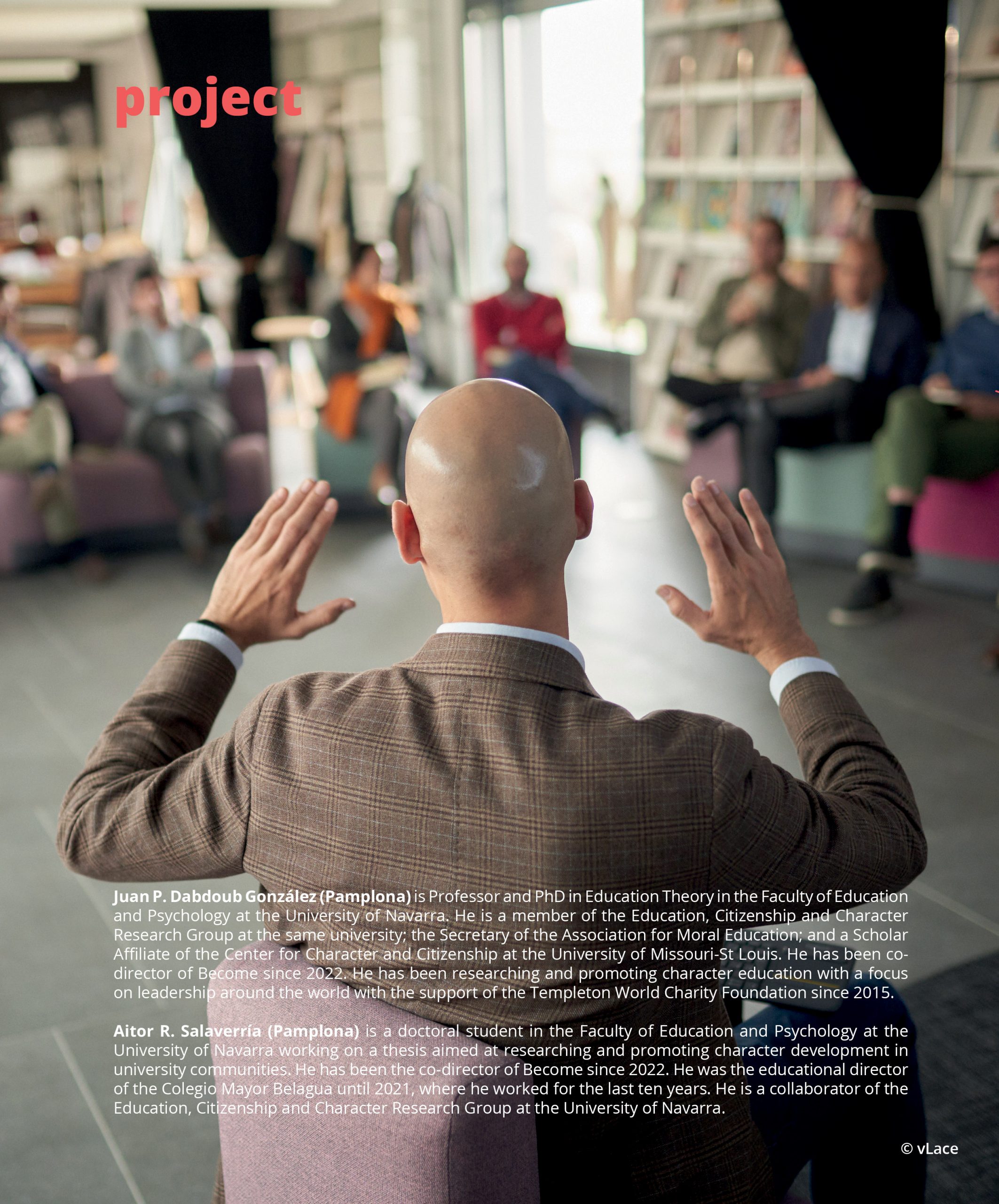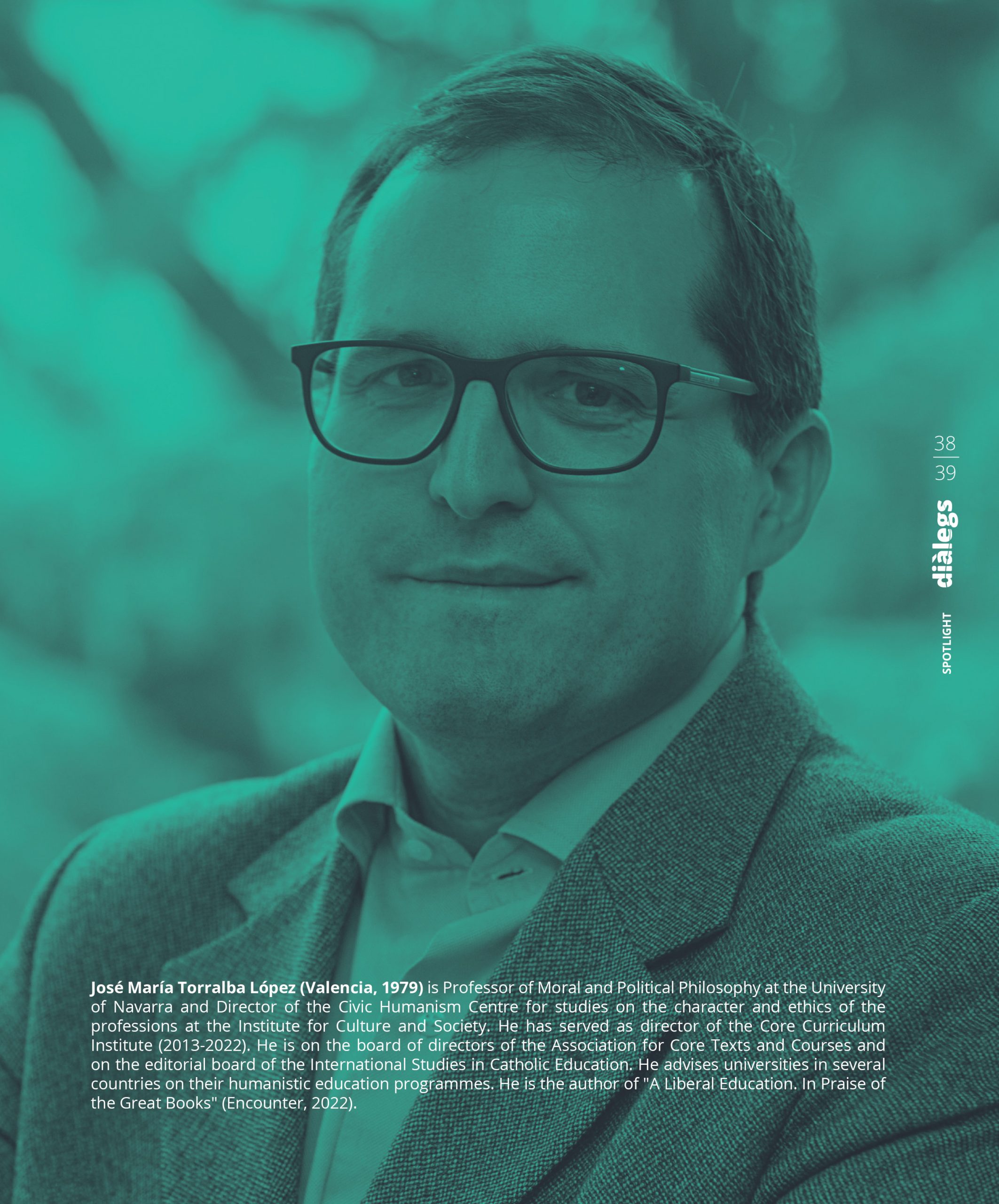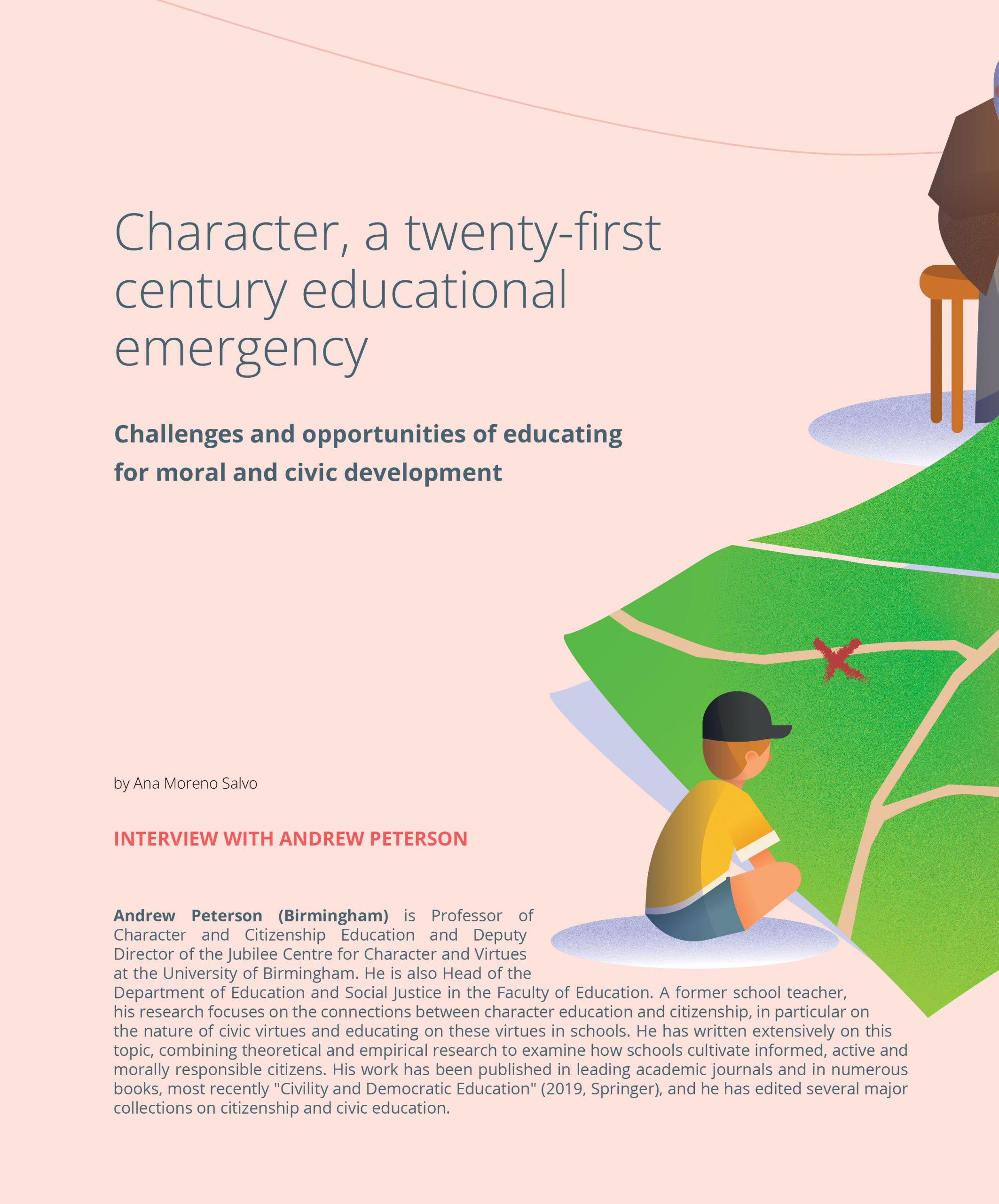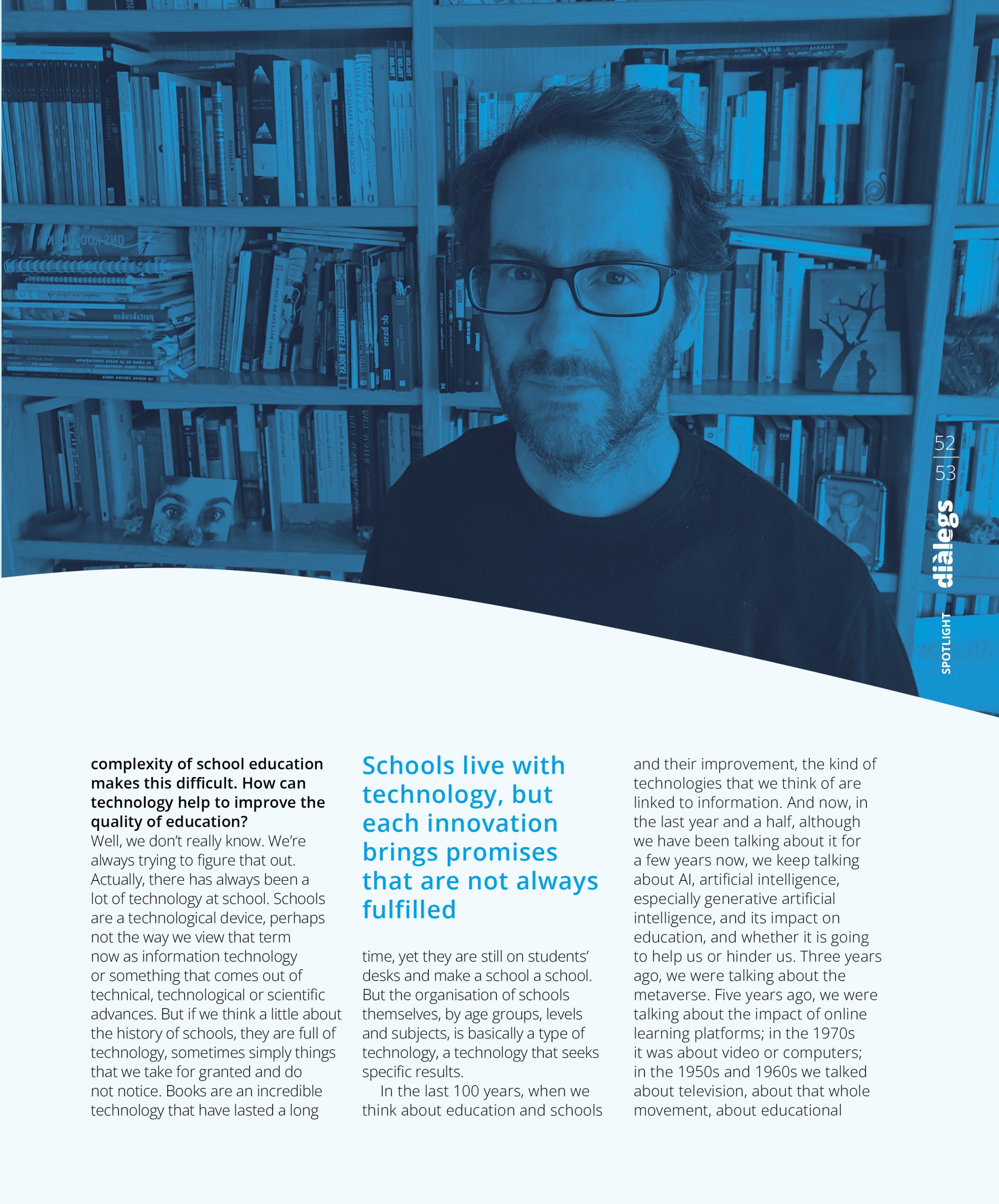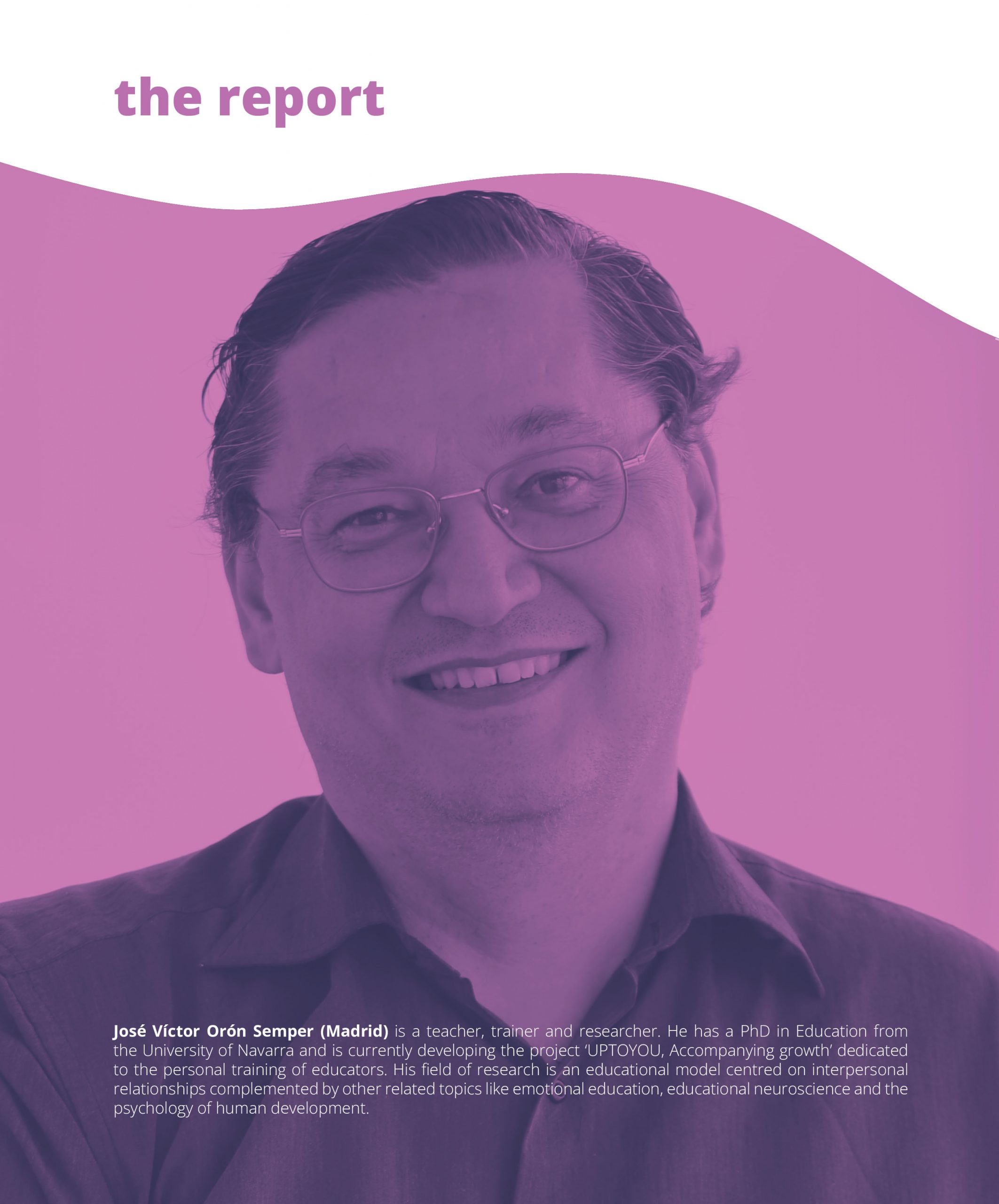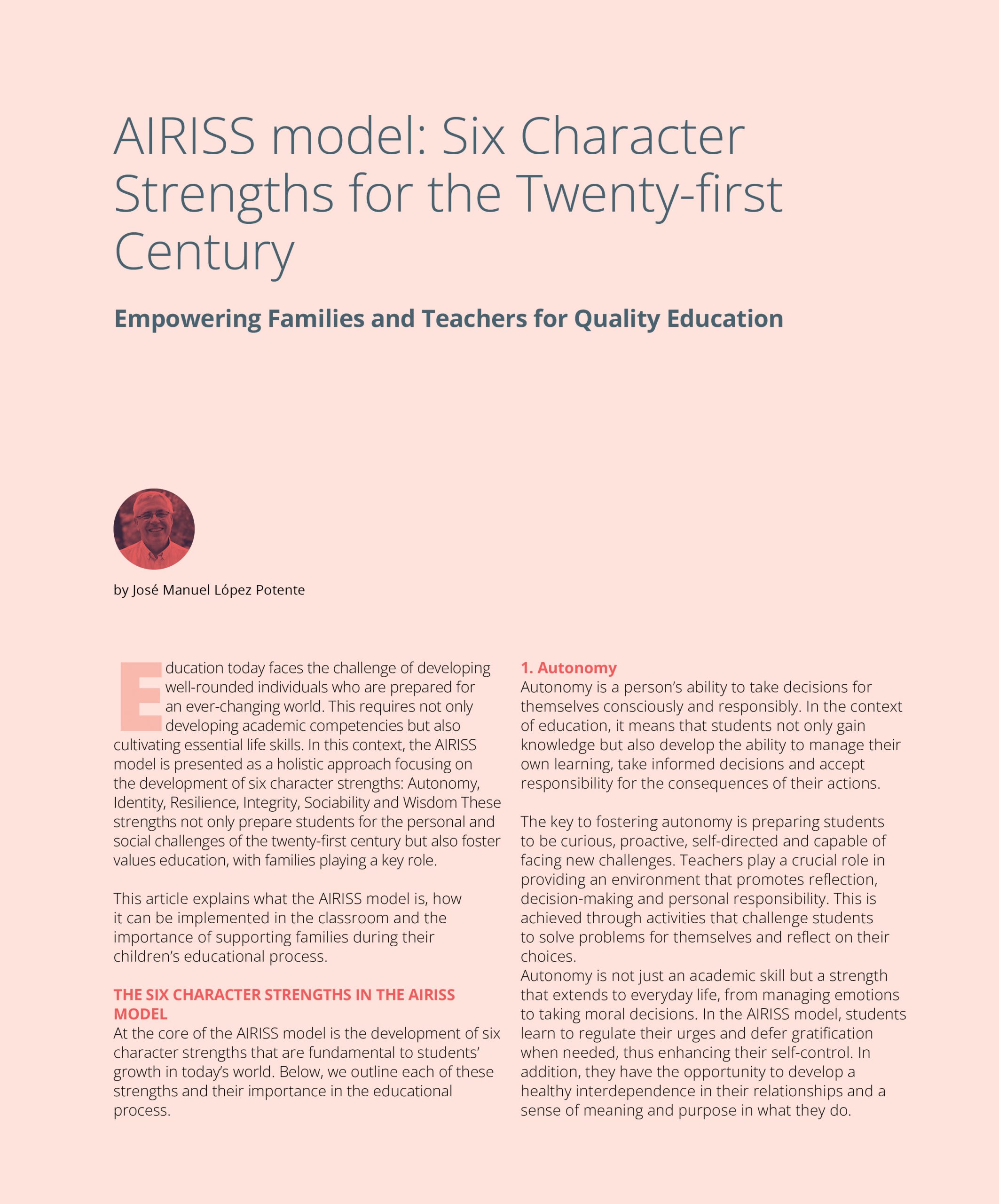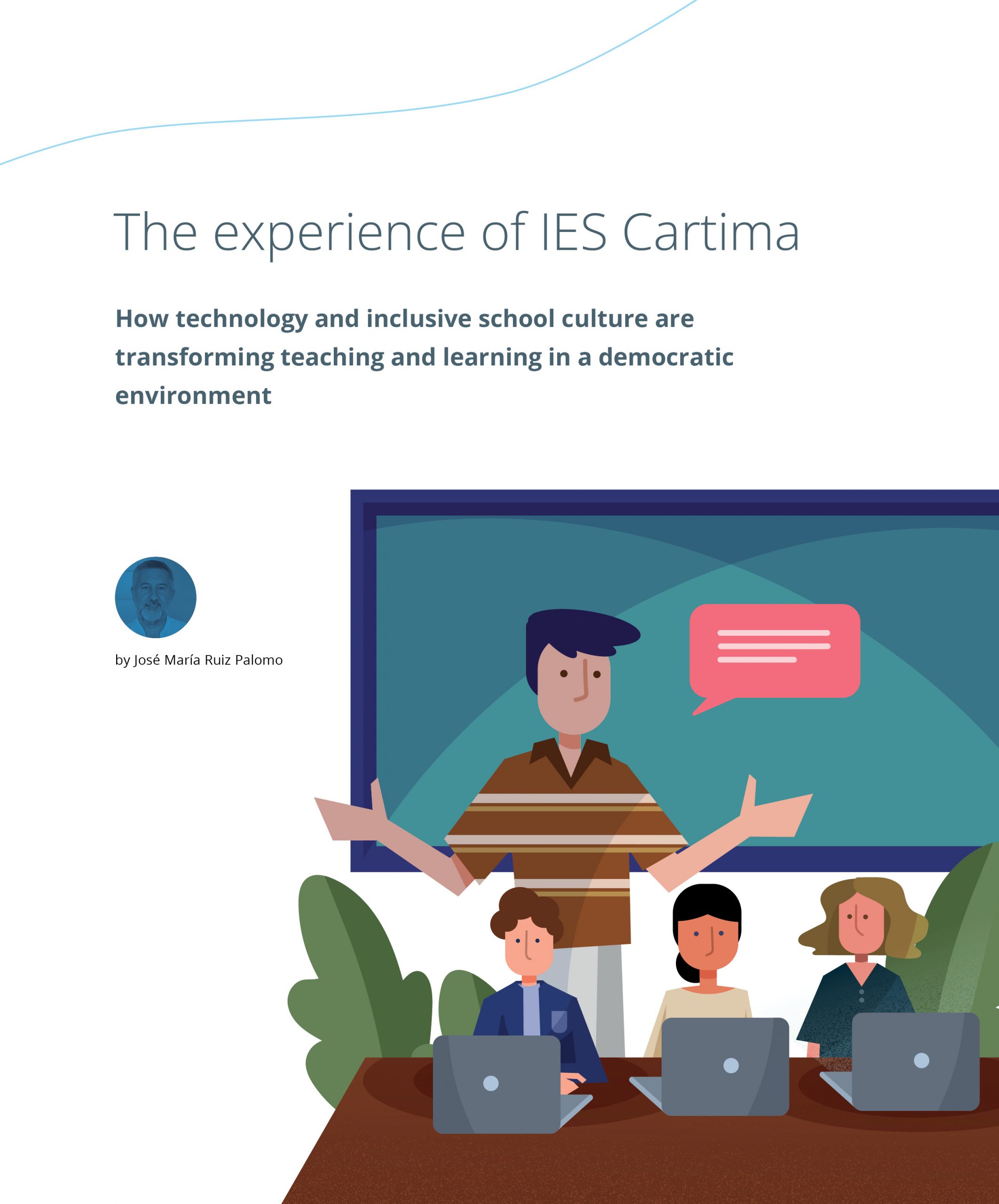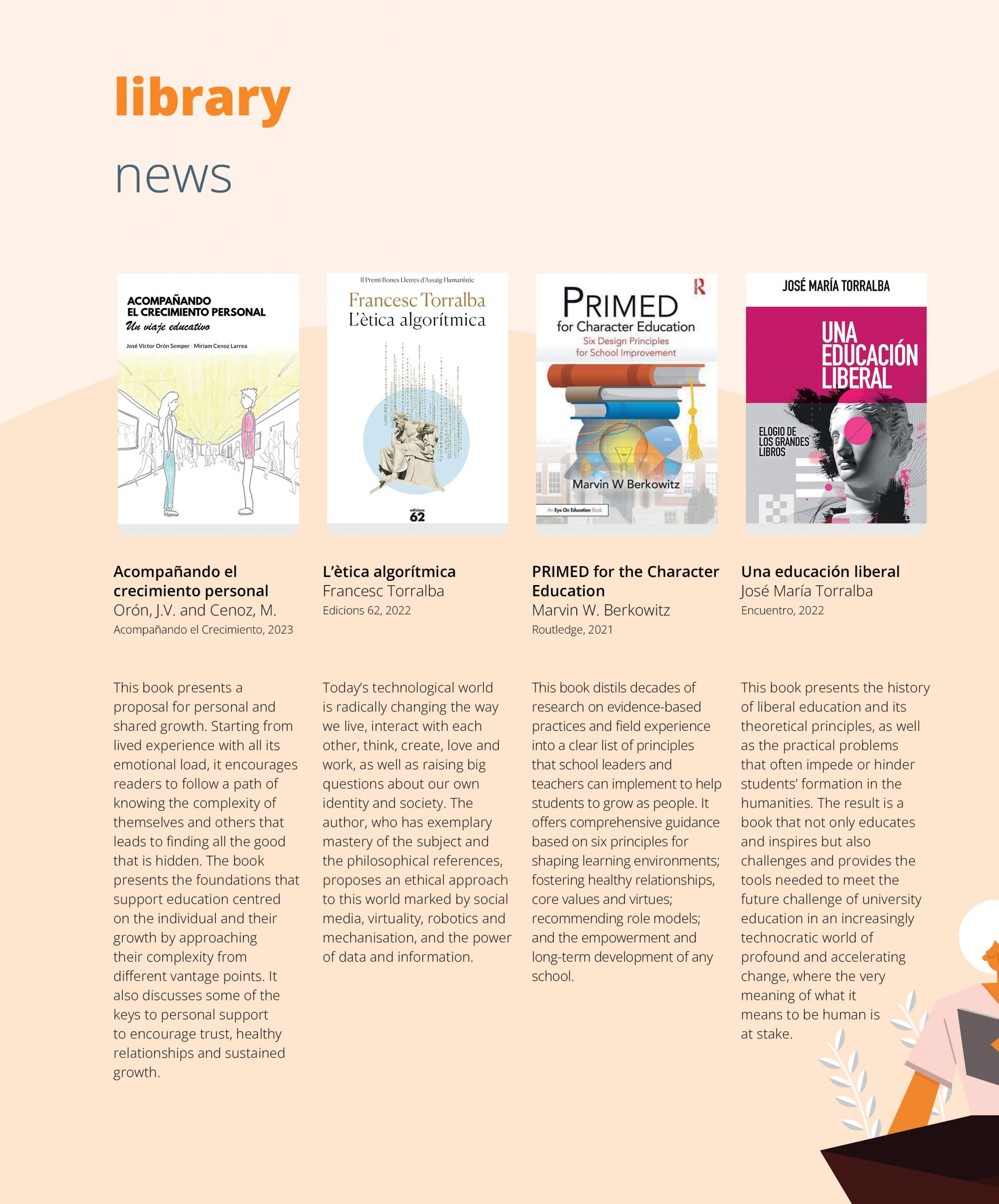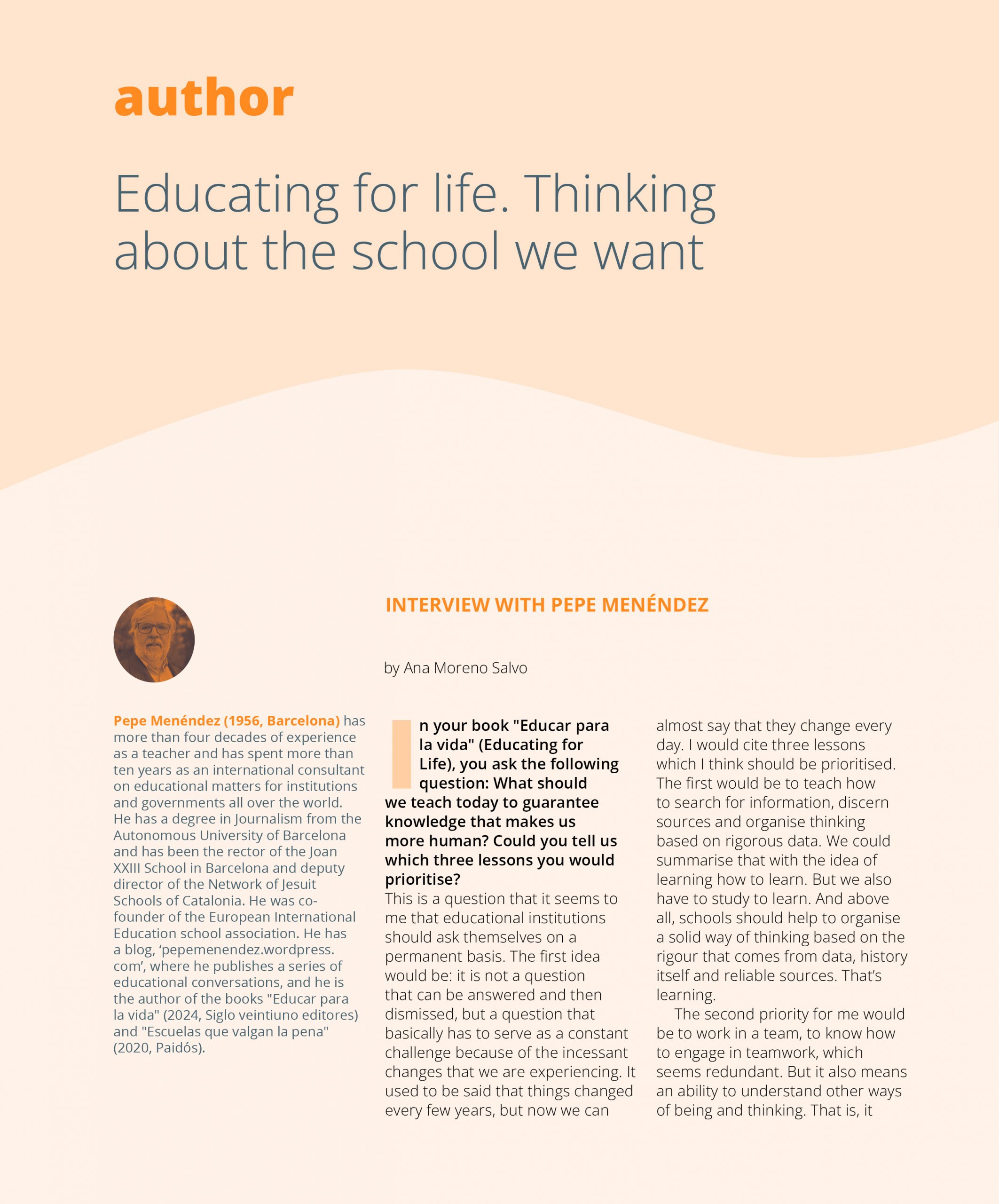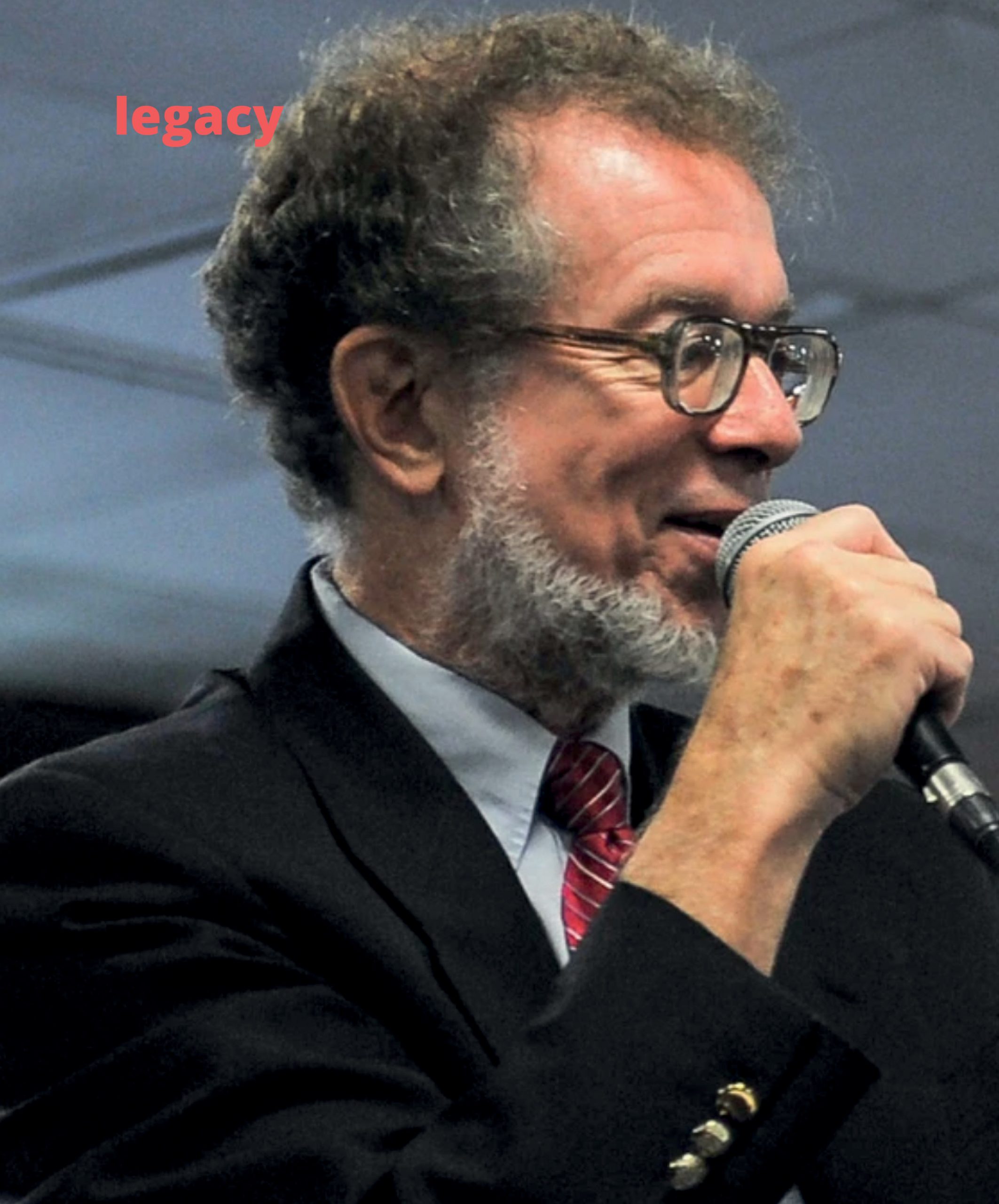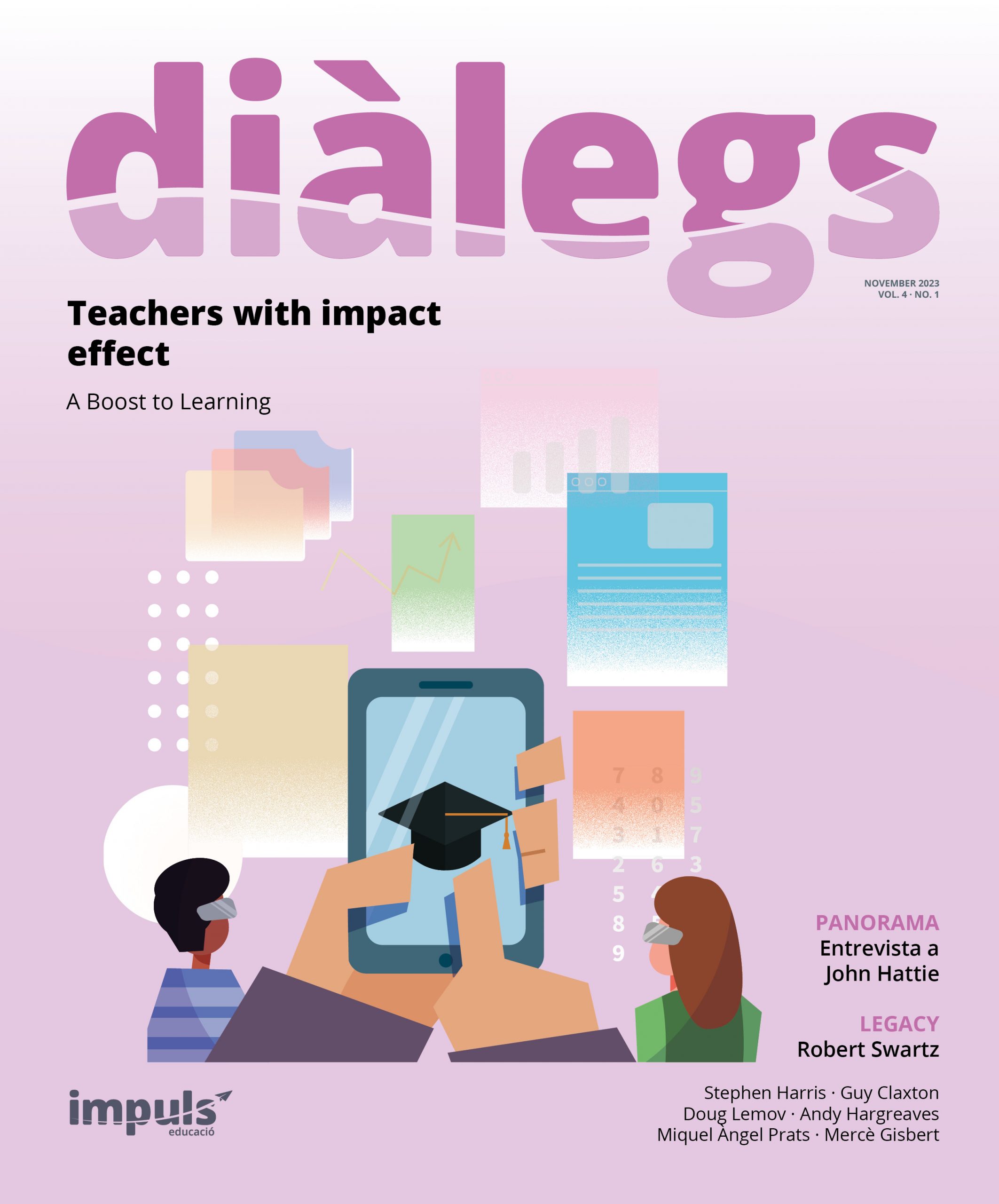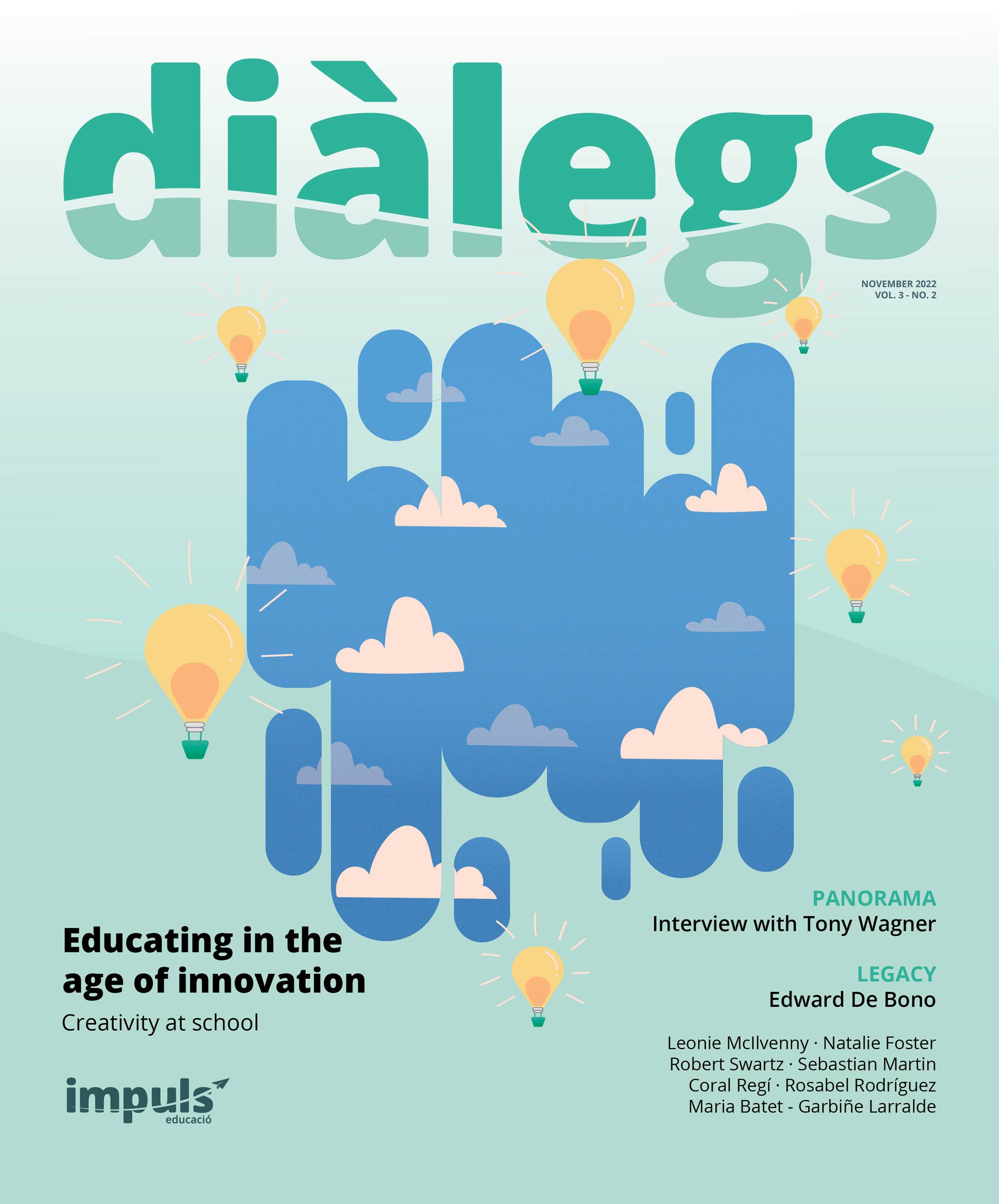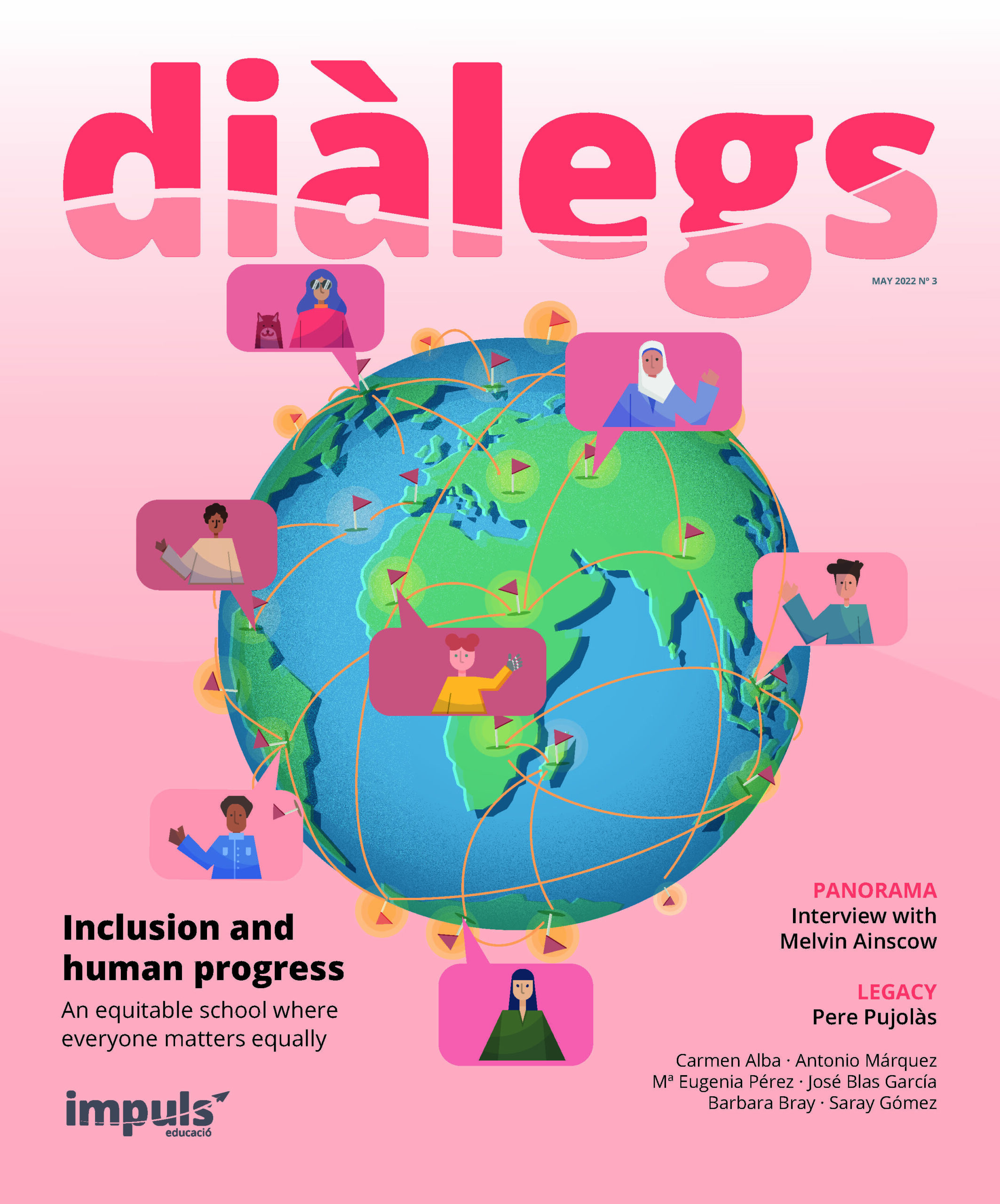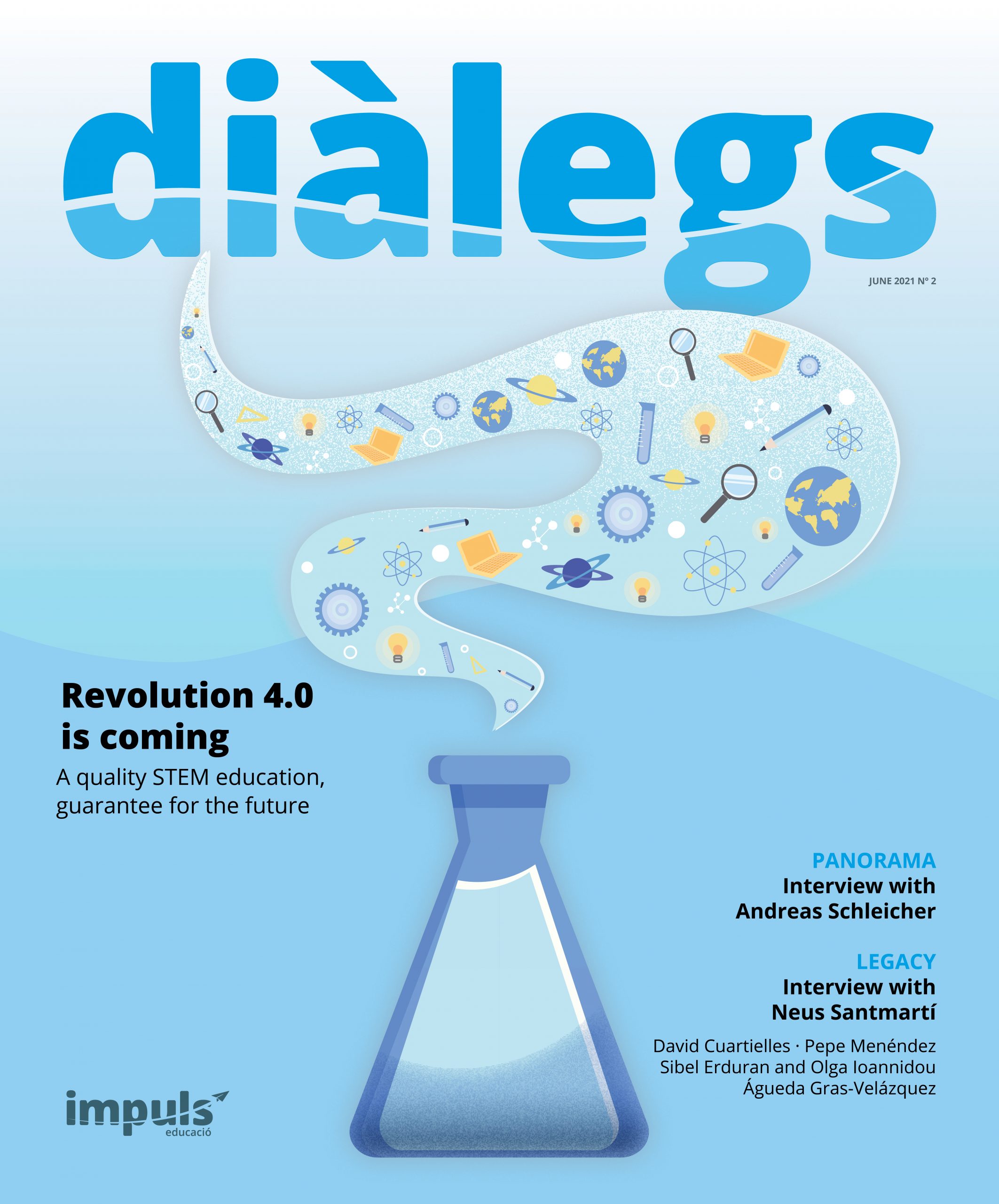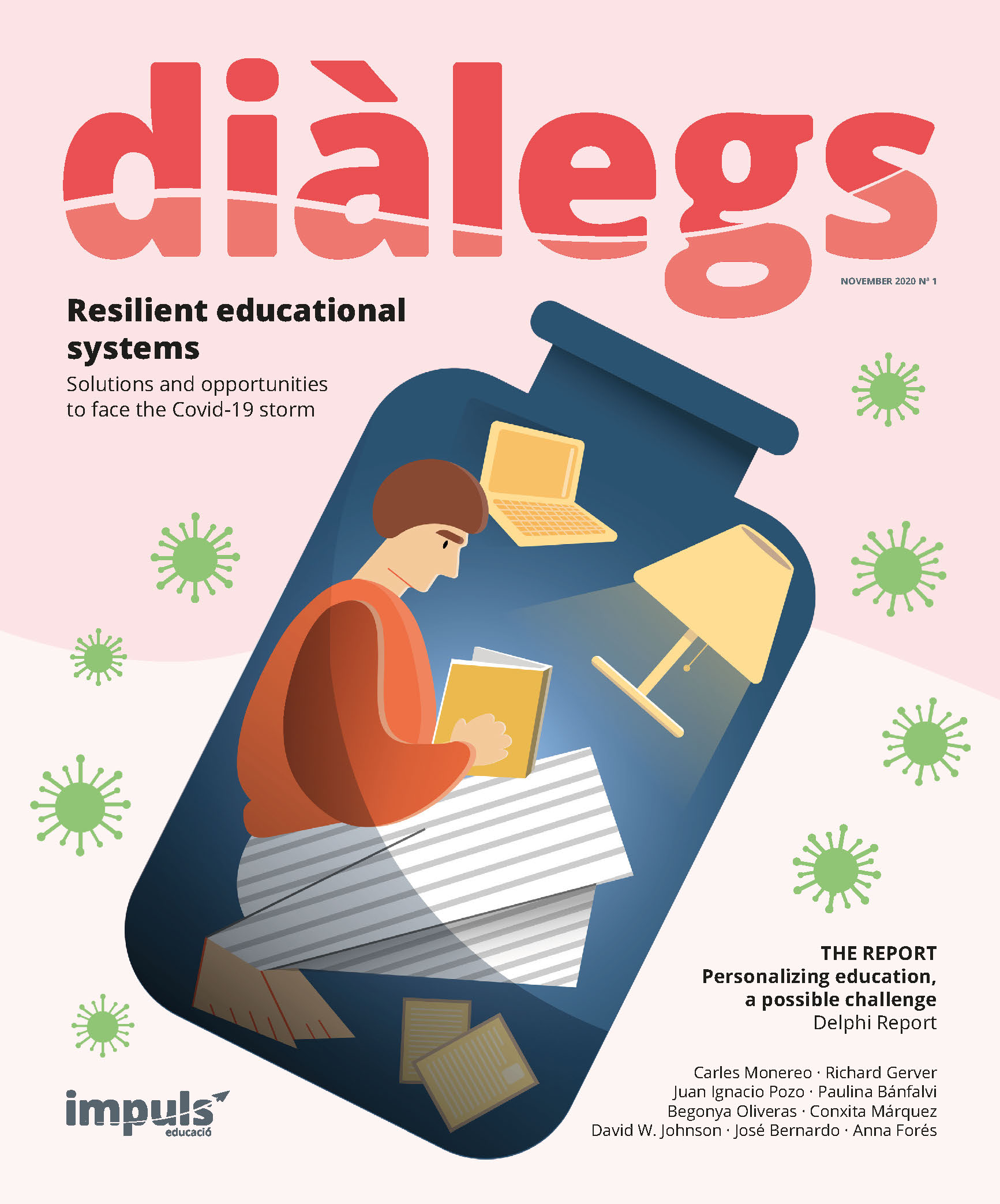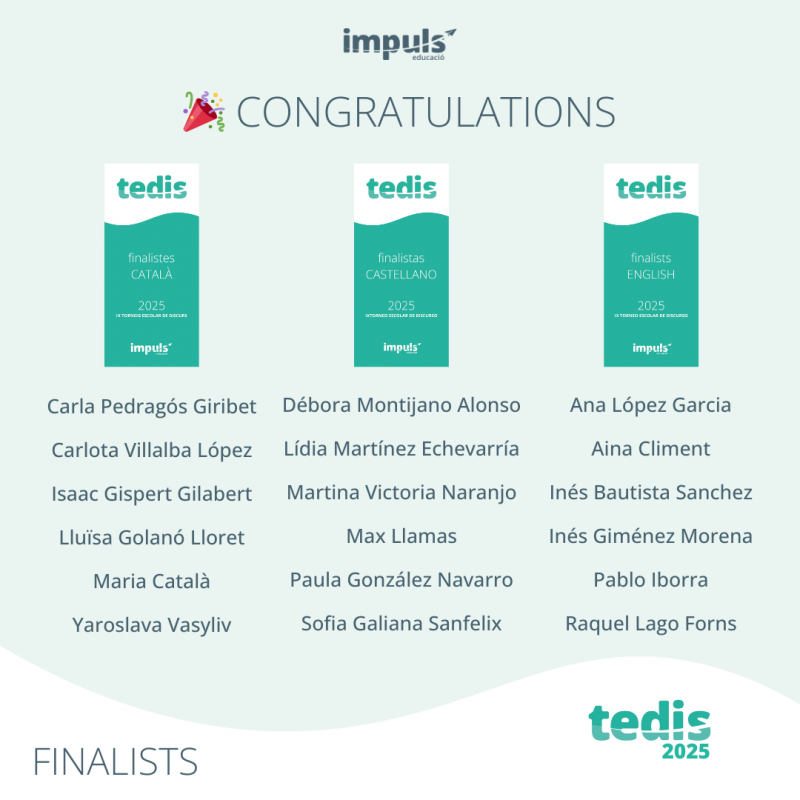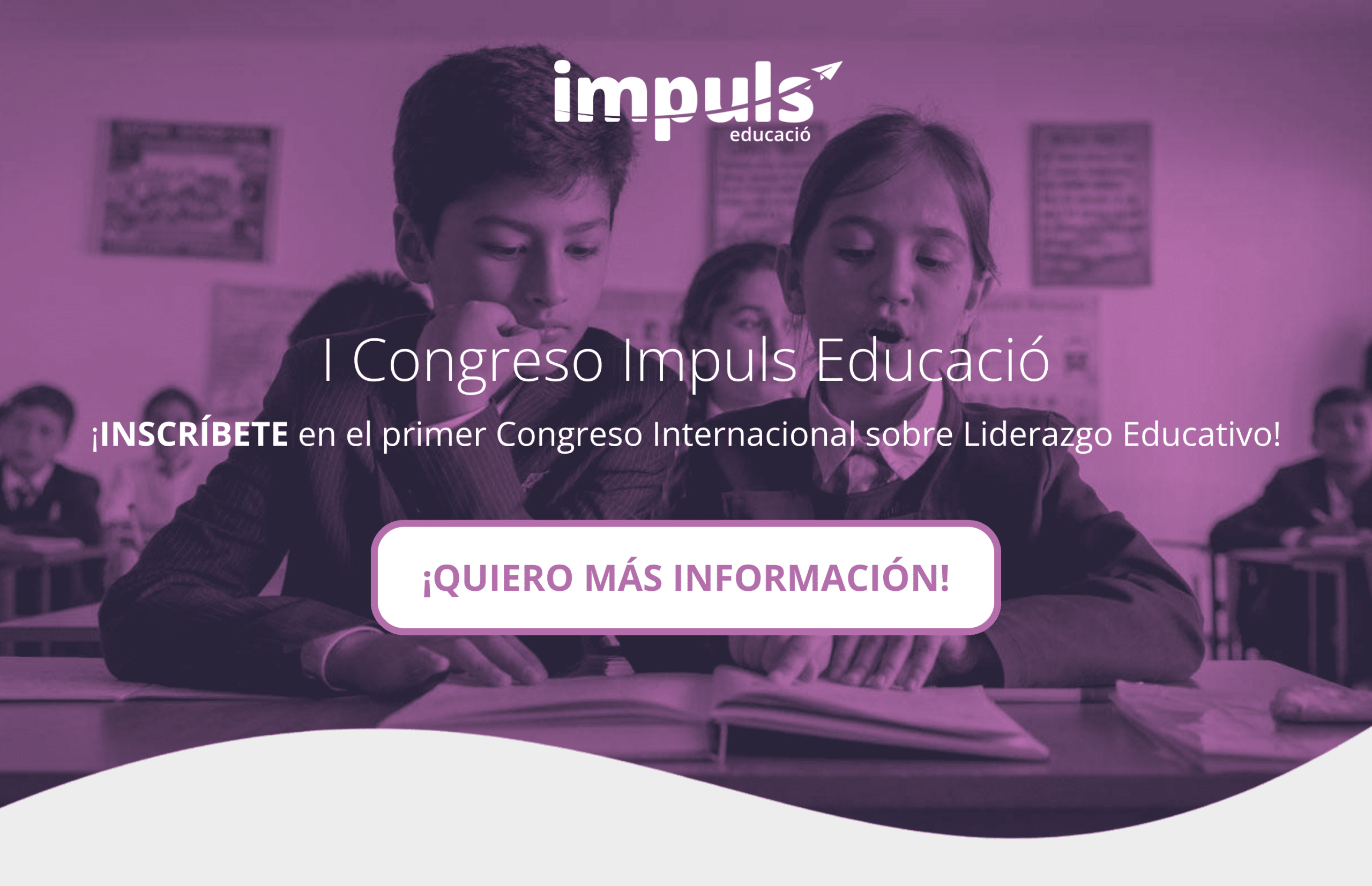A humanising school is irreplaceable
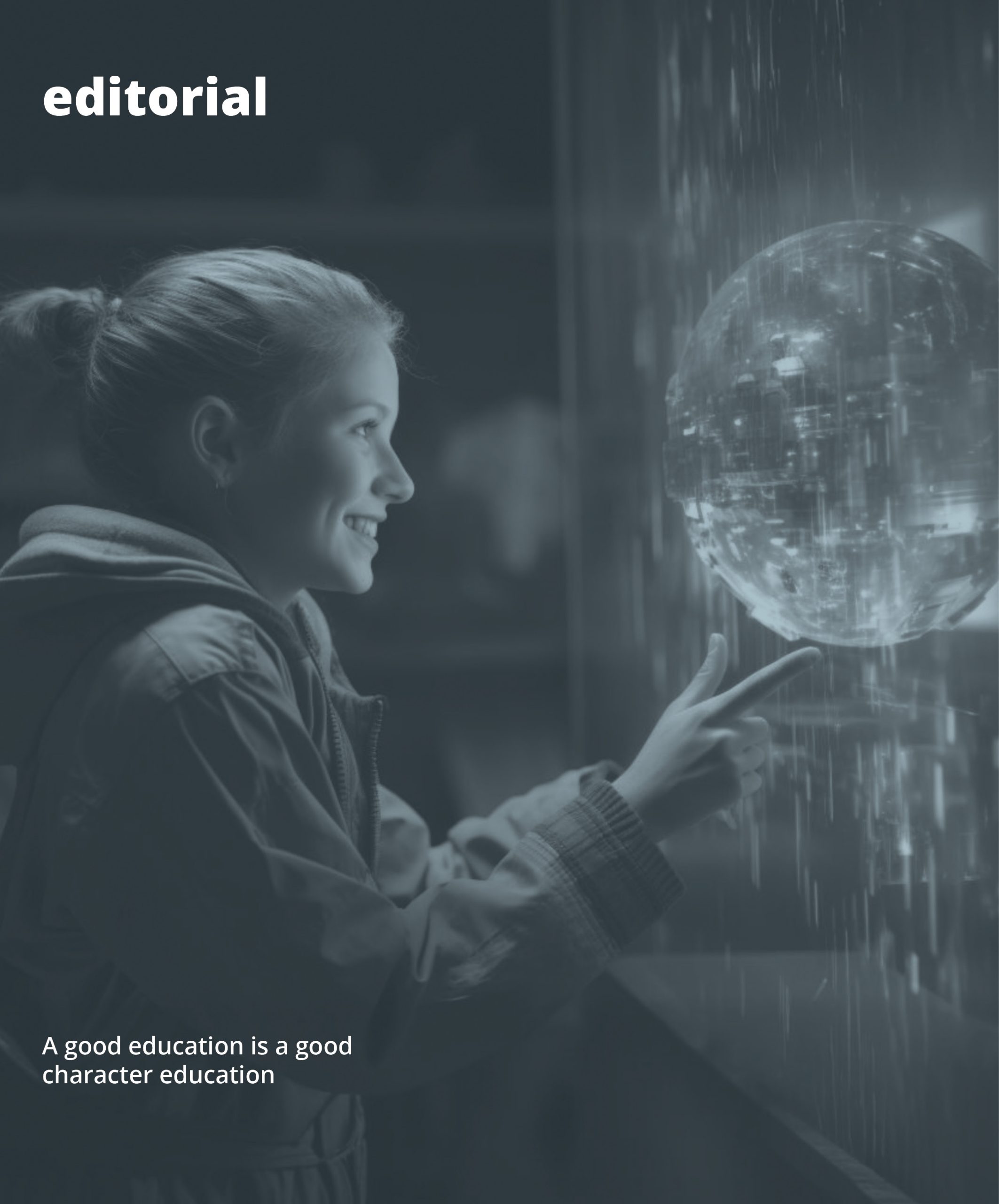
‘How can we help our young people to understand who they are and what they want to contribute to the world?’ This is how Professor Edward Brooks, from the Oxford Character Project, opens a window to reflect on education in times of change. Today, artificial intelligence is redefining everyday life and values, challenging schools to educate in not only knowledge but also integrity, human awareness and the social role of citizens.
In this edition, Diàlegs would like to invite you to join our experts in taking a closer look at how to reassess the humanising role of schools. Joanne Quinn believes that deep, life-transferable learning that contributes to real improvement in the world requires the development of critical thinking, character and citizenship. To Quinn, deep learning implies social engagement and a personal identity geared at the common good.
José Víctor Orón reminds us that every educational experience should be an opportunity for students to find what they really want. From a more philosophical perspective, Francesc Torralba insists that education should
encompass the person’s physical, emotional, social and spiritual development. In a world where values seem to be fading away, he believes it is essential to foster virtues such as judiciousness and boldness in young people so they can find their way in times of uncertainty.
From a standpoint critical of AI, Carlos Magro warns of the danger of considering technology a panacea for all kinds of problems. The idea that education has to be humanised within the omnipresence of technology encourages Pepe Menéndez to defend schools in which critical thinking and freedom are encouraged. Meanwhile, José María Torralba is committed to a form of education in which young people can reflect on essential issues of human existence by reading great books.
Andrew Peterson and James Arthur of the Jubilee Centre stress the importance of character education in an increasingly fragmented world. Both believe that virtues such as honesty and resilience are crucial in forming responsible and committed citizens. They point out that character education helps young people to not only find purpose in life but also contribute to a more cohesive society.
Finally, from the Become project, Juan P. Dabdoub and Aitor R. Salaverría propose redesigning an educational school culture that is committed to students’ integral development and well-being. And they suggest we rethink daily educational interaction and learning practices so that they foster personal character and identity. In an era dominated by technology, Diàlegs seeks to inspire reflections to ‘make things happen in the schools of today and tomorrow’ and once again asserts that education cannot lose its essence of forming human beings capable of being in the world with humanity and purpose.
Diàlegs december 2024 Vol. 5 · Núm. 1
Featured Articles
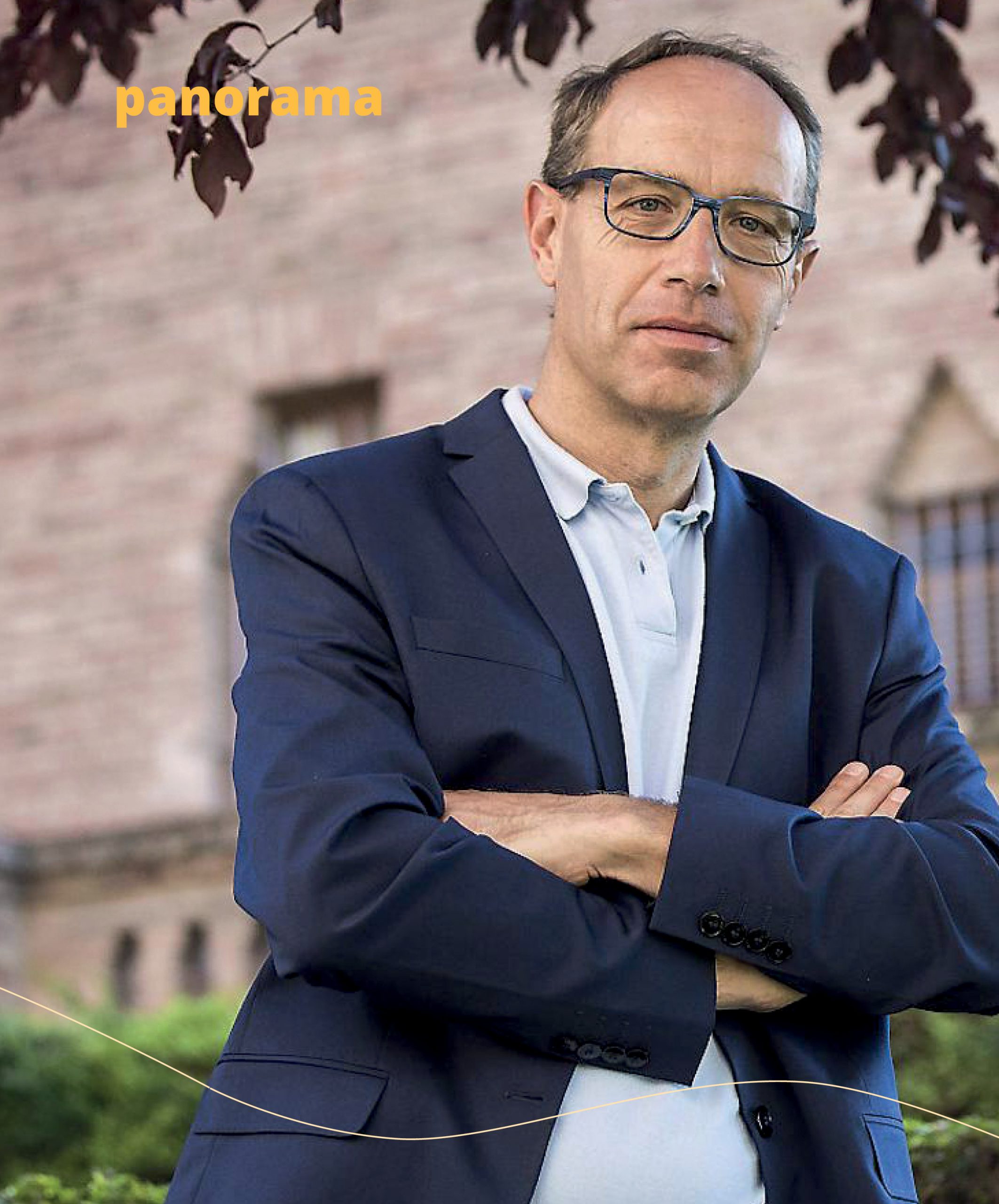
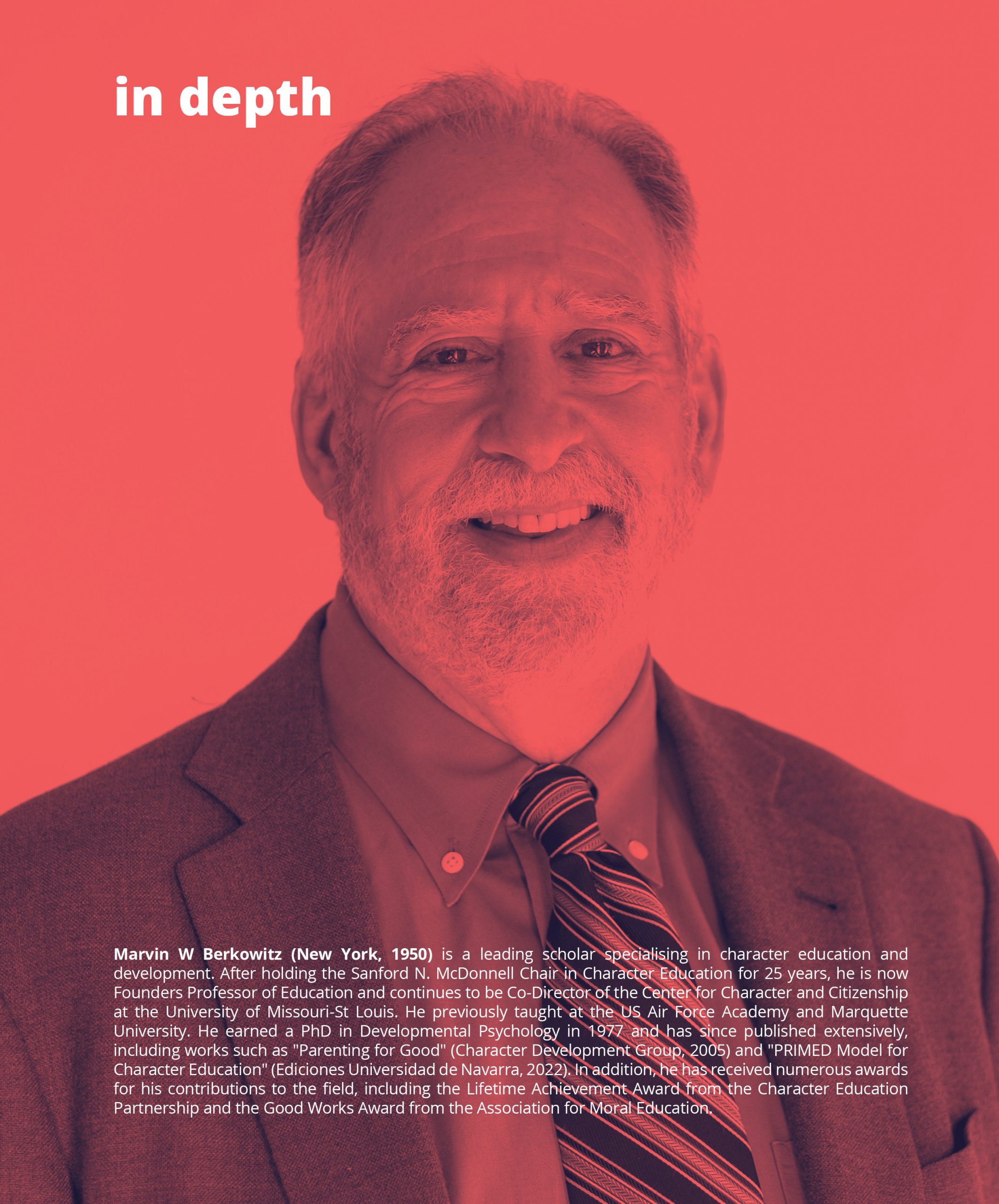
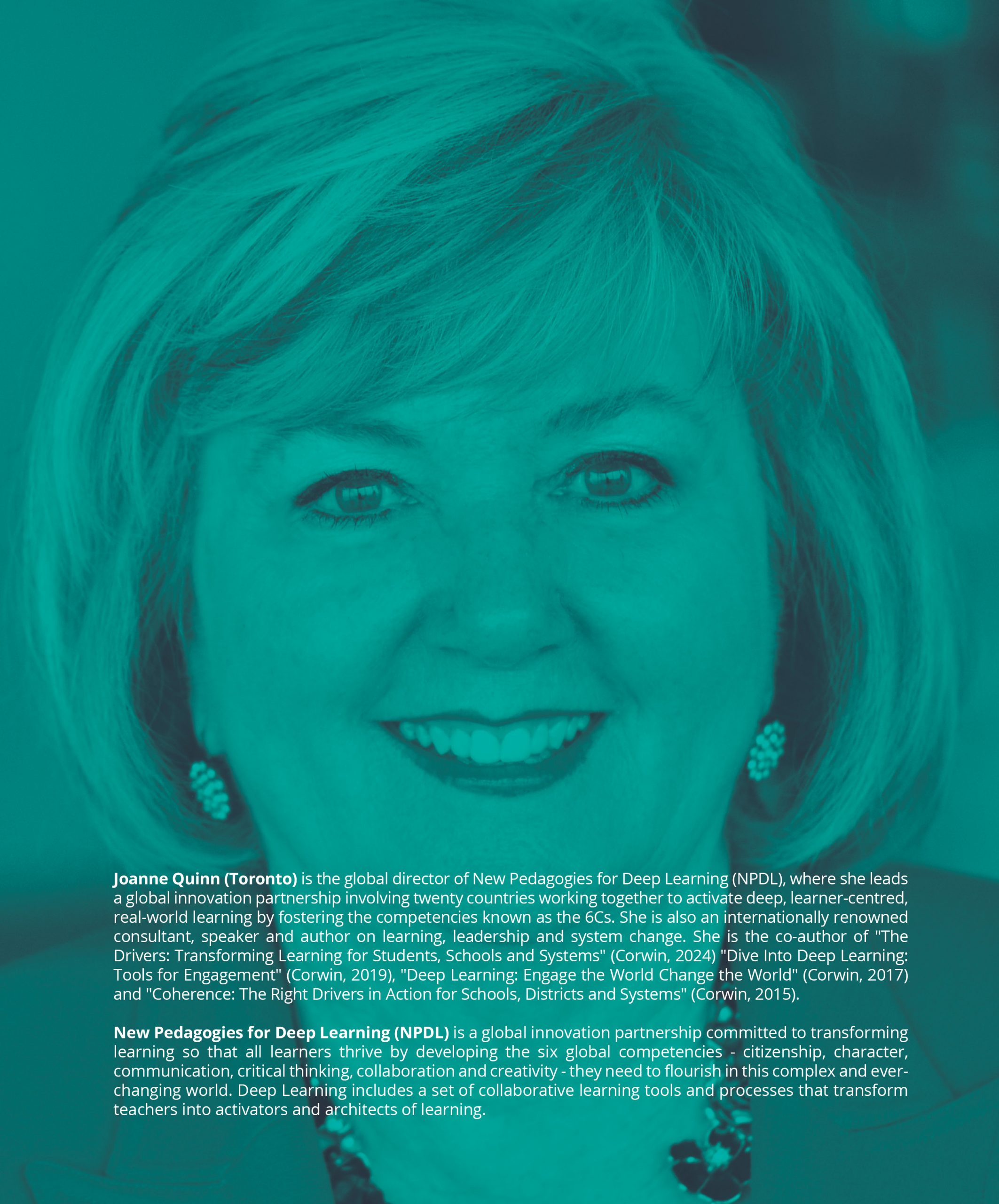
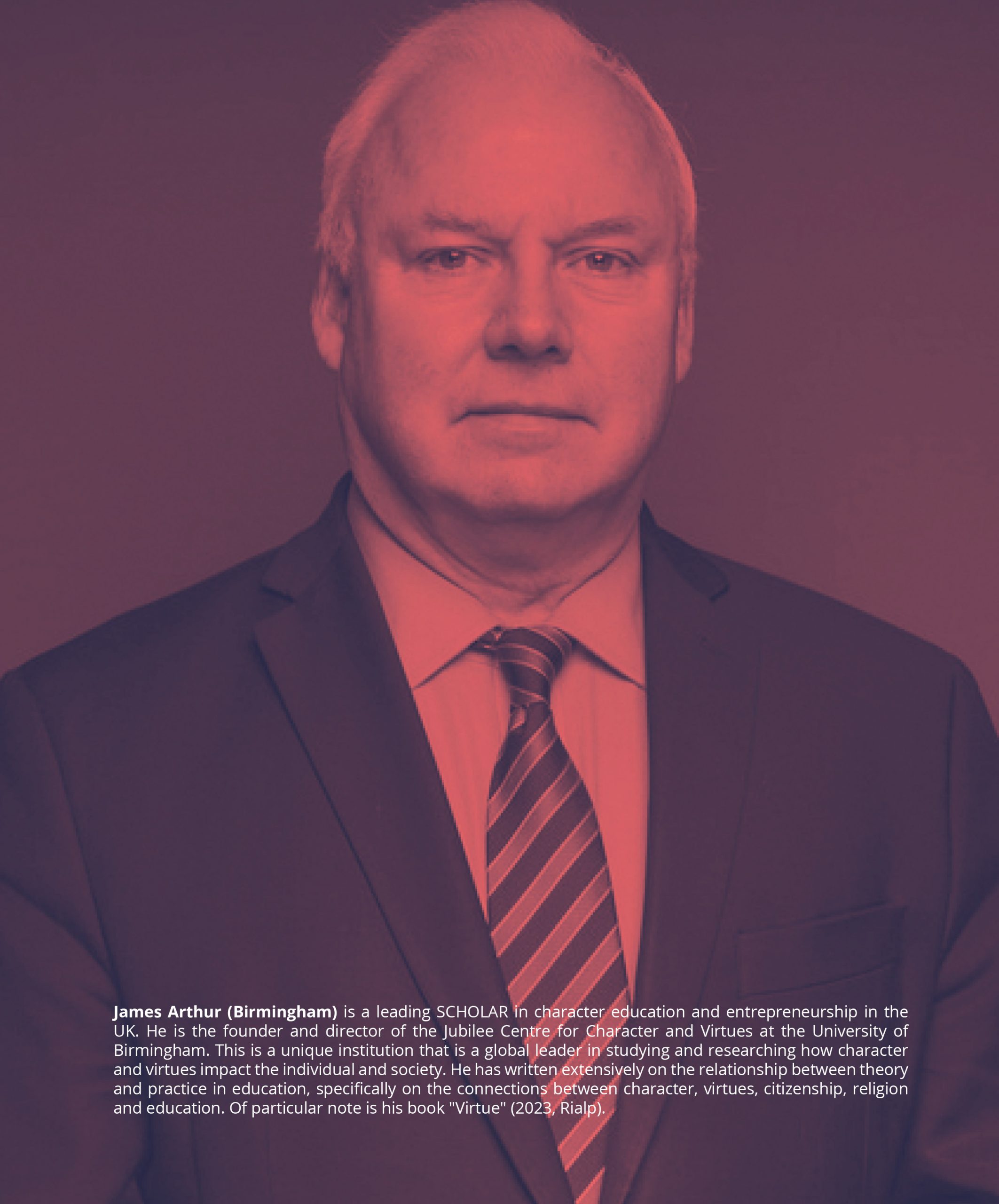
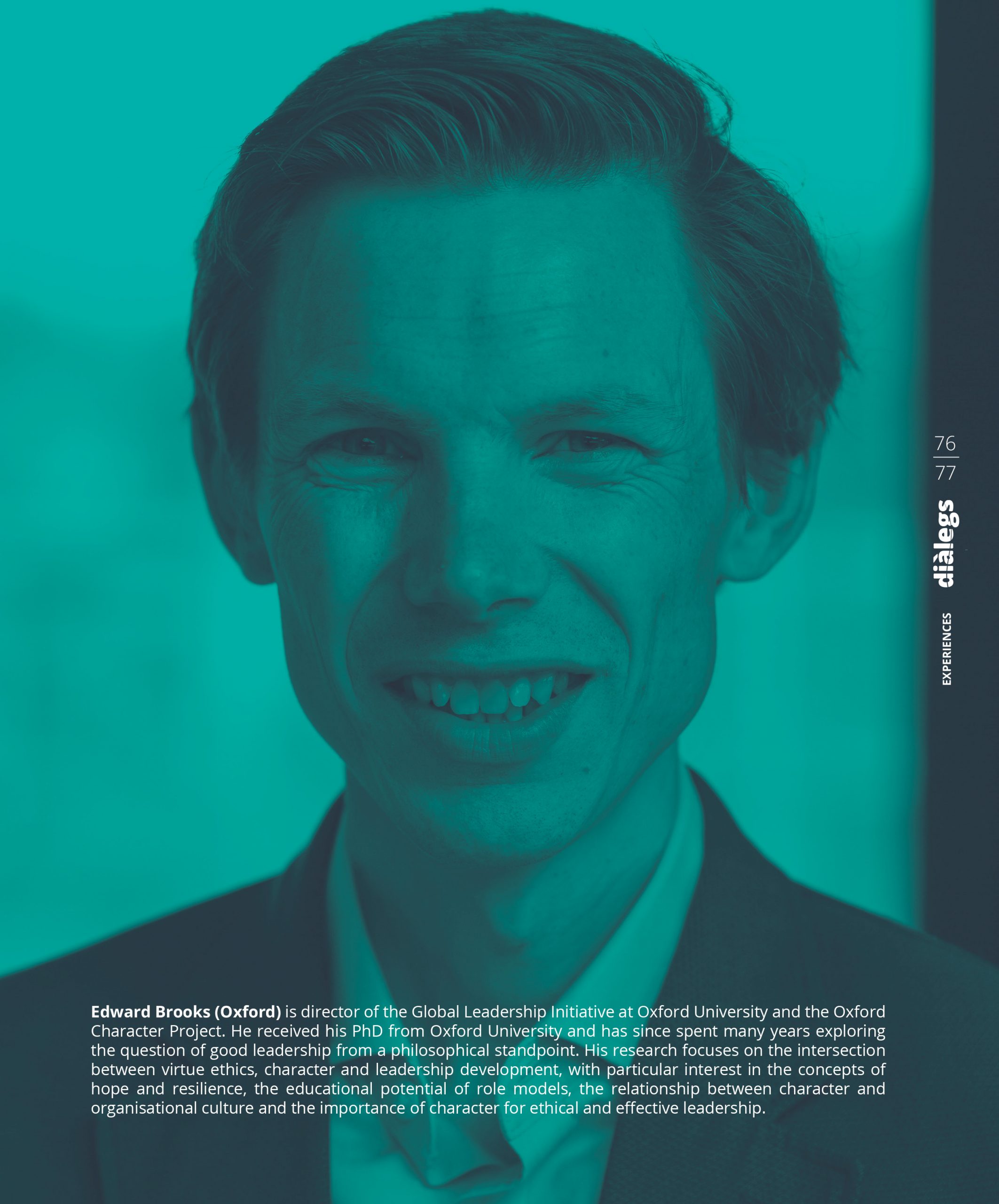
Other Articles
Diàlegs Numbers

